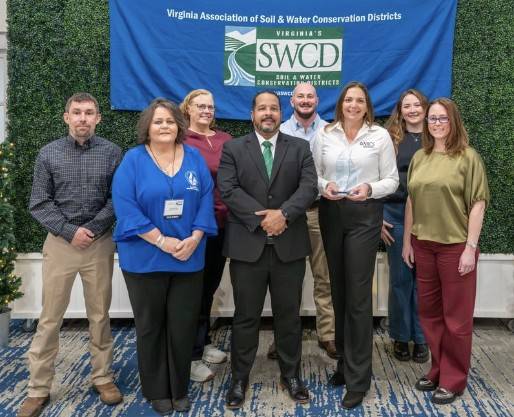Complaints from residents highlight broader conflict between tourism revenue and neighborhood character in Virginia coastal town
CAPE CHARLES, Va. — In this picturesque seaside town on Virginia’s Eastern Shore, a familiar refrain echoes through neighborhood streets, bistros, meetings, and town hall discussions: the pervading tension between Cape Charles’ growing short-term rental industry and its year-round residents seeking to preserve community character.
The latest flashpoint emerged recently when a concerned resident contacted Town Manager Rich Keuroglian, alleging that a neighboring property was operating as an unregistered short-term rental. The complaint, which was quickly forwarded to Code Official Jeb Brady for investigation, illustrates the heightened vigilance — and occasional suspicion — that has come to characterize relations between permanent residents and the vacation rental industry.
Brady’s investigation revealed that the property in question was, in fact, properly registered as a short-term rental, and he promptly informed the complainant. But the incident underscores a broader pattern of complaints and concerns that town officials say they field regularly as Cape Charles grapples with its transformation from a quiet coastal village to a popular tourist destination.
The dynamics playing out in Cape Charles mirror conflicts in resort communities across the country, where the economic benefits of vacation rentals often clash with residents’ concerns about noise, parking, and the erosion of neighborhood cohesion. For Cape Charles, a town of roughly 1,000 year-round residents, the stakes feel particularly acute.
Property owners who rent their homes to vacationers argue that the income helps them afford a 2nd home (in an increasingly expensive market) where they can spend weekends, in some cases, may someday retire–while also bringing revenue to local businesses. Critics contend that the proliferation of short-term rentals is pricing out working families and transforming residential streets into de facto hotel districts.
The town has implemented registration requirements for short-term rentals and established complaint procedures, but officials acknowledge that while enforcement remains a priority, it is still an ongoing challenge. With limited staff and resources, Cape Charles relies heavily on resident reports to identify potential violations.
As Cape Charles trudges through another busy summer season, the debate over short-term rentals shows no signs of abating. Town officials say they continue to review their policies, seeking a balance that preserves both the community’s character and its economic vitality.
For now, residents on all sides of the issue agree on one thing: the future of their small town hangs in the balance of how well they can navigate these competing interests.




Truly a conundrum. Do you want “knowledgeable” folks to tell you what you can and cannot do with your property, in which property rights are right (no pun intended) up there with speech and innocence until proven guilty? And if it means you are inviting jerks to ruin your idea of civility, isn’t the problem WAY bigger than the trash, parking issues, speeding/traffic violations and petty vandalism? Aren’t you attempting to put lipstick on a pig, that “pig” being the loss of general civility? I realize each era had their idea/ideal of what was “proper” and what was destructive. Not to get too far “out there”, but the mid-50s to the mid-60s was a wonderful time for us Americans and it would be fabulous to return to “that normalcy”. Well, it would be a great idea unless you were a part of the underclass Black community. WAY different concept of “the good old days.” Baseball is still an incredible sport and thing to watch. But if you go to a game these days, the actual game is WAY less important than silly stuff surrounding it, including the accoutrements. And the costs are mainly absurd. This is progress? Back to the story. If you visit Richmond, you can see two quite different ideas of what is quality-of-life. The first is the nouveau-riche area known as Short Pump. If you want to spend money the “proper” way, you head there. And you can buy a multi-level condo with a single car garage and a zero-lot line arrangement (thin walls!) with a tiny deck overlooking a mass of asphalt and speeding cars all for a million dollars or so. Yay! OR…you can peruse this anomaly known as “Carytown”. It is a collection of buildings of various shapes and sizes and some odd organics. And yes, it also attracts, um, “creative” folks. But it was put on the earth organically and not master-planned. If you want the planned ideal, you go to Short Pump. If you don’t mind “those folks”, you go to Carytown. And so my question, do you want to take a mainly organically grown town (albeit with railroad money) and attempt to organize it, because the values of yesteryear are being thrown away? You want to take a Carytown and make it a Short Pump? Be careful for what you wish for, you just may get it.
“And yes, it also attracts, um, “creative” folks.”
What are creative folks?
Creative folks are those who you pay money for their performances and may even allow them to sit beside you at an event, but you probably don’t want them to be your next door neighbor. You know, the public art and whatnot…
Please refrain from commenting until you sober up.
“ Critics contend that the proliferation of short-term rentals is pricing out working families and transforming residential streets into de facto hotel districts.” Case in point: at a recent meeting of the Historic District Civic League, our new town manager admitted that he could not afford to purchase a home in Cape Charles. If the Town Manager, who is paid about twice as much as a public school teacher, cannot afford a home in town, then there is no hope for affordable, workforce housing for anyone else.